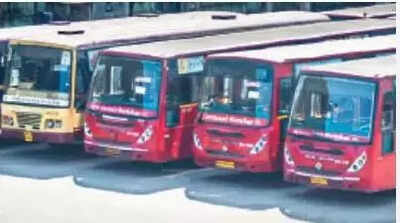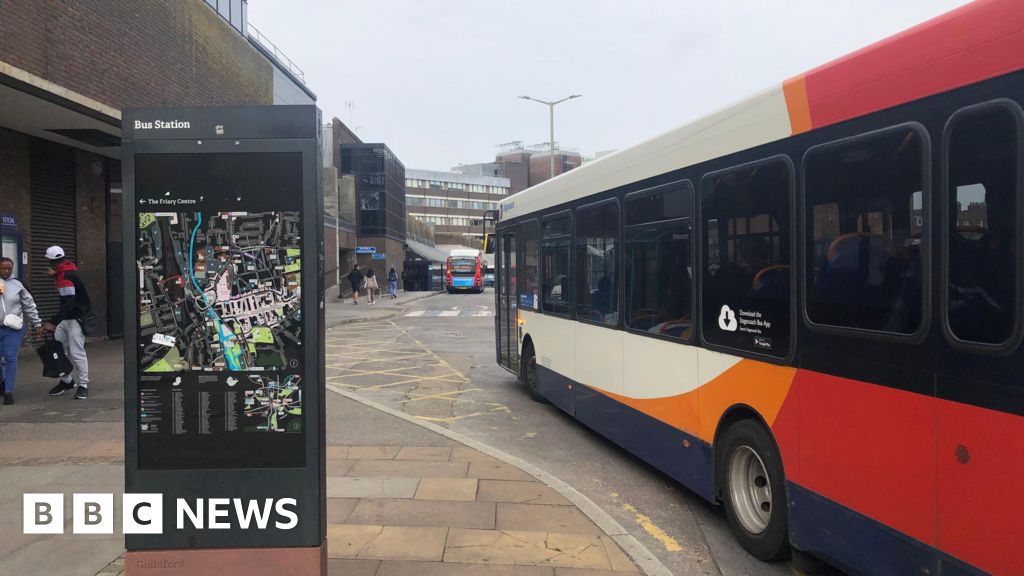Chile Becomes Host City for Smart City Expo, with New Editions in US, Brazil, Mexico, Colombia, Argentina, Malaysia, Qatar, and China Added to List – Travel And Tour World

Global Expansion of Smart City Expo with a Focus on Sustainable Urban Development
Chile has been selected as a host country for the Smart City Expo, joining a global network of events dedicated to urban innovation and sustainability. This expansion includes new editions in the United States, Brazil, Mexico, Colombia, Argentina, Malaysia, Qatar, and China. The initiative reflects a coordinated international effort to address critical urban challenges and advance the United Nations’ Sustainable Development Goals (SDGs).
Report on Smart City Expo Santiago de Chile (SCES) 2025
Event Overview
- Dates: July 24-26, 2025
- Location: Santiago, Chile
- Theme: “Recovering the City for People: A Shared Challenge”
- Organizers: Fira de Barcelona and Interexpo, in partnership with the Government of Santiago and regional stakeholders.
- Projected Participation: Over 6,000 attendees and nearly 100 exhibiting companies.
Strategic Alignment with Sustainable Development Goals (SDGs)
The expo’s agenda is structured to directly address key components of the 2030 Agenda for Sustainable Development. The four primary thematic areas are:
- Safe and Resilient Cities: This aligns with SDG 11 (Sustainable Cities and Communities), specifically target 11.1 (safe and affordable housing) and 11.5 (reducing the impact of disasters), and SDG 3 (Good Health and Well-being) by promoting secure urban environments.
- Adaptation to Climate Change: This directly supports SDG 13 (Climate Action) by focusing on strategies to build resilience and adaptive capacity to climate-related hazards and natural disasters.
- Mobility and City Planning: This addresses SDG 11.2 (access to safe, affordable, accessible, and sustainable transport systems) and SDG 9 (Industry, Innovation, and Infrastructure) by promoting innovative and sustainable infrastructure.
- Living Better – Opportunities for Social Integration and Cohesion: This focus area targets SDG 10 (Reduced Inequalities) and SDG 11.7 (universal access to safe, inclusive, and accessible green and public spaces).
Key Participants and Contributions to Sustainability
The event will convene a diverse group of stakeholders, fostering the multi-stakeholder collaborations essential for achieving the SDGs, as outlined in SDG 17 (Partnerships for the Goals).
- Speakers: Over 100 experts will participate, including:
- Marta Rofin Serrà, CEO of Healthy Cities, focusing on urban health and well-being (SDG 3).
- Washington Fajardo, Urban Development Specialist at the Inter-American Development Bank, addressing resilient urban planning (SDG 9, SDG 11).
- Government representatives from Brazil and Colombia, sharing regional perspectives on city planning and social cohesion (SDG 10, SDG 11).
- Exhibitors: Approximately 100 companies, including Claro Empresas, Copec, Enel, and Indra, will showcase technological solutions. These innovations are aimed at:
- Promoting clean energy and resource efficiency, contributing to SDG 7 (Affordable and Clean Energy).
- Developing smart mobility and sustainable infrastructure in line with SDG 9 and SDG 11.
- Enhancing waste management and environmental protection to meet the targets of SDG 11.6.
International Strategy and Regional Significance
Fira de Barcelona’s Global Initiative
The Santiago event is a component of Fira de Barcelona’s international strategy to establish a global platform for urban development discourse. By organizing similar expos in cities such as New York, Curitiba, Puebla, and Kuala Lumpur, the initiative promotes a worldwide collaborative effort to implement the principles of SDG 11 and foster the global partnerships required by SDG 17.
Santiago’s Role in Latin American Urban Transformation
By hosting SCES, Santiago de Chile reinforces its position as a regional hub for sustainable urban innovation. The event provides a critical platform for Latin American cities to exchange knowledge and develop context-specific solutions to challenges such as rapid urbanization and social inequality, thereby accelerating progress towards the 2030 Agenda in the region. The expo serves as a catalyst for implementing people-centric and sustainable urban development models across Latin America, positioning Santiago as a key contributor to achieving SDG 11 throughout the continent.
SDGs Addressed in the Article
-
SDG 11: Sustainable Cities and Communities
- The article is centered around the “Smart City Expo,” an event dedicated to creating “smarter, more sustainable urban living.” The core theme is “Recovering the City for People,” which aims to make cities “safe, inclusive, and resilient.” This directly aligns with SDG 11’s goal of making human settlements inclusive, safe, resilient, and sustainable.
-
SDG 13: Climate Action
- The article explicitly states that the expo addresses global urban challenges like “climate change.” One of the four main focus areas of the conference is “Adaptation to Climate Change,” demonstrating a direct connection to taking urgent action to combat climate change and its impacts.
-
SDG 9: Industry, Innovation, and Infrastructure
- The expo is a platform for “showcasing groundbreaking innovations in urban development” and “cutting-edge technologies.” It features over 100 companies presenting “disruptive solutions” and provides a platform for “startups and emerging companies.” This focus on innovation, technology, and transforming urban infrastructure connects directly to SDG 9.
-
SDG 7: Affordable and Clean Energy
- The article mentions that the exhibition will cover “green energy solutions” and lists “Enel,” a global energy company, as a participant. This highlights a focus on sustainable and clean energy as part of creating smart cities, which is the central goal of SDG 7.
-
SDG 17: Partnerships for the Goals
- The event itself is a massive partnership, organized by “Fira de Barcelona and Interexpo in partnership with the Government of Santiago and other key regional stakeholders.” It brings together “public authorities,” “startups,” the “private sector, government bodies, and civil society.” The global expansion to the US, Brazil, Mexico, and other countries further underscores the commitment to “fostering global collaboration,” which is the essence of SDG 17.
Specific Targets Identified
-
Under SDG 11 (Sustainable Cities and Communities):
- Target 11.2: Provide access to safe, affordable, accessible and sustainable transport systems for all. The article mentions a focus on “Mobility and City Planning” and the exhibition of “smart mobility technologies that are redefining how people move within cities.”
- Target 11.3: Enhance inclusive and sustainable urbanization and capacity for participatory, integrated and sustainable human settlement planning and management. The expo’s theme, “Recovering the City for People,” and its goal of creating “people-centric cities” through collaboration among diverse sectors directly support this target.
- Target 11.6: Reduce the adverse per capita environmental impact of cities, including by paying special attention to air quality and municipal and other waste management. The article notes that the exhibition will feature solutions for “waste management” and making cities “environmentally friendly.”
- Target 11.7: Provide universal access to safe, inclusive and accessible, green and public spaces. The focus on creating “safe” and “inclusive” cities that prioritize “citizen well-being” and “social integration and cohesion” aligns with this target.
-
Under SDG 13 (Climate Action):
- Target 13.1: Strengthen resilience and adaptive capacity to climate-related hazards and natural disasters in all countries. The conference’s focus on “Safe and Resilient Cities” and “Adaptation to Climate Change” directly addresses this target by promoting solutions to help cities adapt and become more resilient.
-
Under SDG 9 (Industry, Innovation, and Infrastructure):
- Target 9.5: Enhance scientific research, upgrade the technological capabilities of industrial sectors in all countries, in particular developing countries, including, by 2030, encouraging innovation. The expo serves as a platform to “foster innovation” by showcasing “cutting-edge technologies” from over 100 companies and startups, aiming to transform urban development.
-
Under SDG 17 (Partnerships for the Goals):
- Target 17.17: Encourage and promote effective public, public-private and civil society partnerships. The article describes the expo as a collaboration between “Fira de Barcelona,” “Interexpo,” the “Government of Santiago,” “public authorities,” “startups,” the “private sector,” and “civil society,” perfectly embodying the multi-stakeholder partnership model.
Indicators for Measuring Progress
-
For SDG 11 Targets:
- Indicator for Target 11.2: The number and type of “smart mobility technologies” and “sustainable mobility” solutions presented and showcased by participating companies.
- Indicator for Target 11.3 & 11.7: The number of attendees (over 6,000) and participating stakeholders (public authorities, private sector, civil society) engaged in discussions on “people-centric” and “inclusive” urban planning.
- Indicator for Target 11.6: The number of companies presenting solutions related to “waste management” and “green energy” aimed at reducing the environmental impact of cities.
-
For SDG 13 Targets:
- Indicator for Target 13.1: The number of speakers (over 100) and conference sessions dedicated to the themes of “Safe and Resilient Cities” and “Adaptation to Climate Change.”
-
For SDG 9 Targets:
- Indicator for Target 9.5: The number of participating companies (nearly a hundred) and startups showcasing “groundbreaking innovations,” “disruptive solutions,” and “cutting-edge technologies.”
-
For SDG 17 Targets:
- Indicator for Target 17.17: The number of host countries for the Smart City Expo (Chile, US, Brazil, Mexico, Colombia, Argentina, Malaysia, Qatar, and China), indicating a growing global partnership. The number of distinct stakeholder groups (public, private, civil society, government) mentioned as collaborators.
Summary Table
| SDGs | Targets | Indicators |
|---|---|---|
| SDG 11: Sustainable Cities and Communities |
11.2: Sustainable transport systems 11.3: Inclusive and sustainable urbanization 11.6: Reduce environmental impact of cities 11.7: Access to safe and inclusive public spaces |
Number of smart mobility solutions showcased. Number of attendees (6,000+) and stakeholders collaborating. Number of companies presenting waste management solutions. Focus on “social integration” and “people-centric” design. |
| SDG 13: Climate Action | 13.1: Strengthen resilience and adaptive capacity to climate-related hazards | Number of speakers (100+) and sessions focused on “Adaptation to Climate Change” and creating “Resilient Cities.” |
| SDG 9: Industry, Innovation, and Infrastructure | 9.5: Enhance research and upgrade technological capabilities | Number of companies (100+) and startups showcasing “innovative” and “disruptive solutions.” |
| SDG 7: Affordable and Clean Energy | Implied focus on clean energy solutions as part of smart city development. | Exhibition of “green energy solutions” by companies like Enel. |
| SDG 17: Partnerships for the Goals | 17.17: Encourage effective public, public-private and civil society partnerships | Number of host countries and cities involved globally. Collaboration between government, private sector (Fira de Barcelona, Claro), and civil society. |
Source: travelandtourworld.com

What is Your Reaction?
 Like
0
Like
0
 Dislike
0
Dislike
0
 Love
0
Love
0
 Funny
0
Funny
0
 Angry
0
Angry
0
 Sad
0
Sad
0
 Wow
0
Wow
0













































































